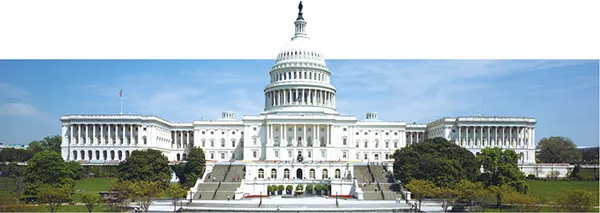"To most Americans, 'bureaucracy' is a fighting word. Few things are more disliked than bureaucracy, few occupations held in lower esteem than the bureaucrat. Both are subjected to repeated criticism in the press and damned regularly by political soap box orators and ordinary citizens. 'Inefficiency,' 'red tape,' 'stupidity,' 'secrecy,' 'smugness,' 'aggressiveness,' and 'self-interest' are only a few of the emotionally charged words used to castigate bureaucrats."
— Richard Stillman, Public Administration: Concepts and Cases
As I type those words, nearly 10 years after having read them in an undergraduate political science textbook, I am at home, prevented from working. Today marks one week since the federal government shutdown (or as Fox News prefers, "slimdown") began. This is my fifth day of not incurring a paycheck for the job I was hired to do. So far I have been furloughed 13 work days in 2013 due to the current shutdown and the previous budget sequestration that caused automatic, across-the-board cuts to federal agencies.
I try to be optimistic — thinking it'll all be resolved soon and maybe, just maybe, I and my fellow 800,000 "non-essential" furloughed employees can go back to work. If what I hear on the news is correct, Republicans and Democrats, including the president, endorse giving back pay to us once this ends.
Hope springs eternal, right?
Now, a confession: None of that is true, insofar as I am not a furloughed federal employee.
But I could be. In fact, I should be based on my background and education. The above quote from Richard Stillman is from a standard undergraduate textbook for political science and public administration students. It's one of many college textbooks I keep on my bookshelf.
However, the anecdote about being furloughed for 13 days (as of this writing) is very real — just not for me. It applies to a friend from graduate school who works in the "other Washington" for a federal agency. Since the shutdown began, he's posted on Facebook about his frustrations with the situation.
His experience, and the experience of many other fellow classmates, is one I would likely share had I stayed on the public administration/government service track on which I began. It started in high school with an interest (obsession, really) in federal law enforcement. For much of my teenage years, I thought about how I'd eventually work for the FBI or U.S. Marshals. Eventually that morphed into National Park Service ranger. Who doesn't like a guy in an olive-green uniform? I thought. And as I found by job-shadowing a park ranger, they carry M16 rifles.
Uniforms, guns, cool hats, hanging in National Parks? I'm in.
Somewhere in college, though, the law enforcement bug died, but the government service idea remained. After all, my dad had worked for and retired from the federal government as a forester. If he could make an honest, middle class living, so could I.
In graduate school I learned more about the exciting topics of public finance and budgeting and helped teach undergraduates about public policy. But where many of my classmates were on obvious paths to work in federal and state government, I shifted toward journalism. Rather than work in government, I reasoned it was more intriguing to study it. I wanted to report on and analyze it from an informed perspective.
(Yes, the idea of journalism being relatively more stable than government employment is a sad joke not lost on me.)
Bureaucracy
"Weber said bureaucracy was supposed to be stable."
Weber refers to Max Weber (pronounced "VAY-ber"), the German social scientist known widely by students of politics for his descriptions of bureaucracy.
I glanced at my bookshelf as soon as I read those words on Facebook from my graduate school friend who had just been furloughed on Day One of the shutdown. The book in my collection contained the essay in which Weber outlines how bureaucratic systems work. Or rather, how they're supposed to work.
At the least, the moment validated having kept so many college textbooks like some hopeless academic hoarder.
Deeper, though, it reiterated what I'd long known, something of no surprise to political scientists and government workers alike: Federal employees — bureaucrats, if you will — are incredibly necessary to a stable, functioning, representative democracy such as ours.
People can (and certainly do) have reasonable differences of opinion about the necessary and proper role of government. By extension that means having political debates about the size of government and the necessity of this agency or that program. Plus, there is no doubt that certain processes and ways of doing "bureaucratic" things can and should be improved. Is there "waste" in the federal government? Yes. Is it the fault of every employee? Certainly not. By and large, federal workers are honest, educated, public service-minded individuals. Among the 2.1 million of them, there will be those who don't pull their weight or do little to benefit the public good.
But that's no reason to throw out the baby with the proverbial bathwater. The federal government is large and complex because this country is large and complex. Serving the interests of 315 million people is no easy task — one not accomplished by simply citing passages of a 226-year-old Constitution.
As Weber noted: "However much people may complain about the evils of bureaucracy, it would be sheer illusion to think for a moment that continuous administrative work can be carried out in any field except by means of officials working in offices."
A lot of people who would otherwise be in those offices — or watching the gates of a National Park or whatever other job function — have been out of work for more than a week.
I very well could be one of those people. If I were, I'd be honored to join my fellow public servants. ♦
Scott A. Leadingham, a freelance writer in Spokane, is also editor of Quill, the magazine for the Society of Professional Journalists.




















